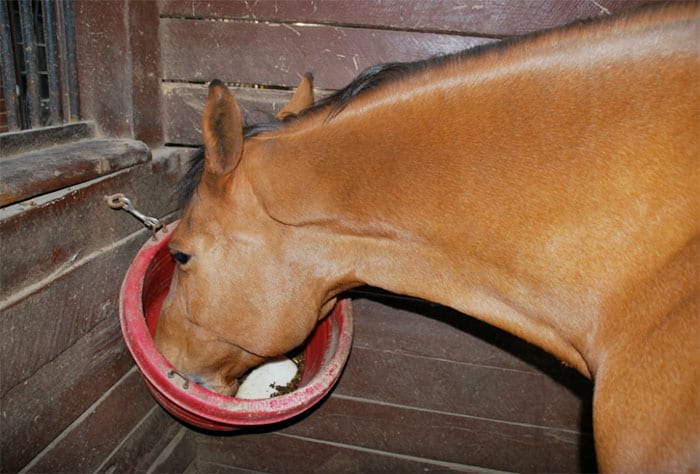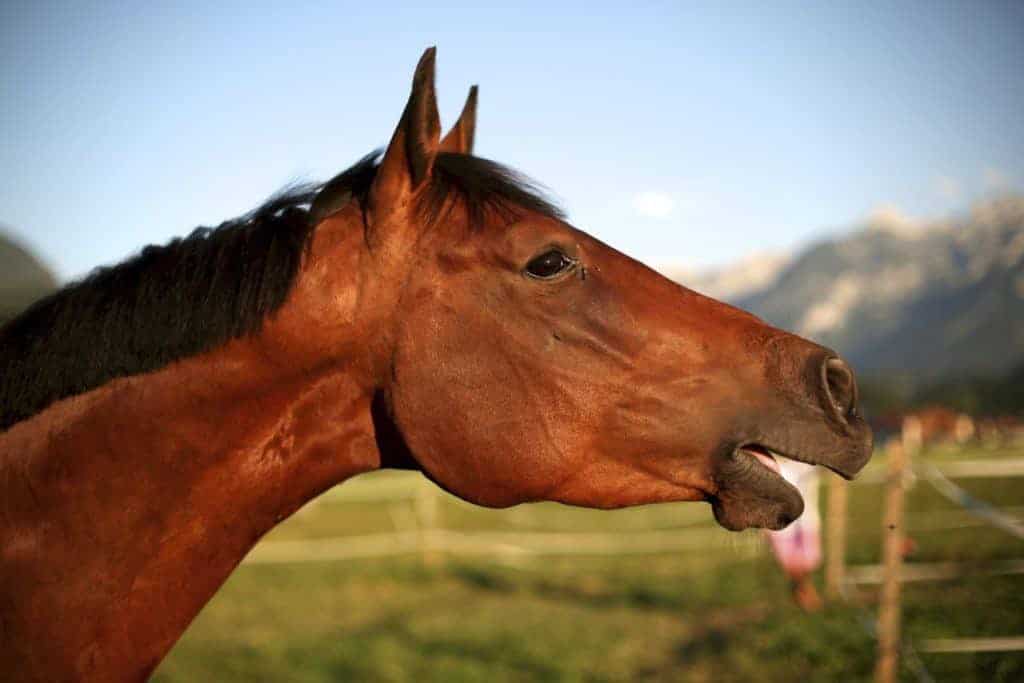
Gastric Ulcers: Omeprazole More Effective in Fasted Horses
Fasting a horse overnight prior to giving an omeprazole dose to treat ulcers improves treatment outcomes, especially for glandular ulcers, a researcher found.

Fasting a horse overnight prior to giving an omeprazole dose to treat ulcers improves treatment outcomes, especially for glandular ulcers, a researcher found.

Does your horse have gastric ulcers? Research suggests the odds are yes. Learn more about EGUS with educational content throughout August.

Showing, training, traveling, or even lifestyle changes can put your horse under stress that risks his health. The right nutritional choices can support his immune system, GI tract, and overall well-being. Learn how.

Gastric disease develops most commonly in the squamous region, when stomach acid splashes onto that vulnerable area of tissue. Why it develops in the glandular region—and how to prevent and treat it—is less clear. Five researchers discuss what we do know about equine glandular gastric disease.

Reduced performance, including a shorter stride length, is likely a consequence of pain caused by equine gastric ulcers.

Learn about the risk factors associated with horses getting gastric ulcers, as well as diagnosis and basic management and treatment.

Italian and Australian researchers investigated the relationship between transportation, gastric pH, and gastric ulcers. The team was surprised by some of the results.

Both NSAIDs induced GI tract inflammation, but phenylbutazone might result in more severe inflammation in the lower GI tract.

How can horse owners help prevent equine gastric ulcers?

One is prescribed by your veterinarian, the other is available over the counter. Find out more in our Q&A.

You’ll find exclusive content focusing on how stress affects horses’ health and behavior all month long on TheHorse.com.

Learn about equine gastric ulcer syndrome signs, diagnostic methods, and prevention and treatment strategies in this visual guide.

Gastric ulcers occur commonly yet present a number of treatment challenges requiring pharmaceutical intervention and intensive lifestyle modifications. Sponsored by Vitalize.

While omeprazole use is unlikely to cause bone issues in horses consuming correct rations, researchers said it’s important to respect professional recommendations for both omeprazole treatment duration and commercial feeding instructions.

From available treatments to feeding strategies, attendees and moderators discussed approaches for managing squamous and glandular gastric disease.

British researchers found more success treating EGGD with misoprostol than with a combination of omeprazole and sucralfate, known to effectively treat squamous ulcers.
Stay on top of the most recent Horse Health news with
"*" indicates required fields